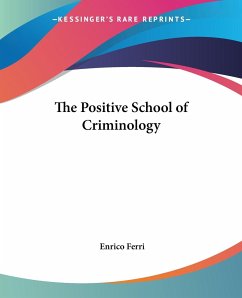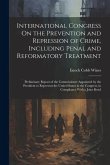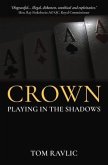Enrico Ferri (1856 -1929) was an Italian criminologist and socialist. Ferri investigated social and economic factors that motivated criminals. He argued for crime prevention over punishment. Ferri notes that a decrease in the prison population is not indicative of a decrease in the crime rate. Instead it shows shorter sentences and the substitution of fines for jail time. There is a change in judicial procedure, but not necessarily a decrease of crime. The best method of dealing with crime is to find the original cause and rectify that problem instead of waiting until a person has committed a crime. The underlying social conditions that lead a particular population to increased criminal activity must be studied. The Positive School of Criminology consists of Three Lectures Given at the University of Naples, Italy on April 22, 23 and 24, 190.1.
Bitte wählen Sie Ihr Anliegen aus.
Rechnungen
Retourenschein anfordern
Bestellstatus
Storno








